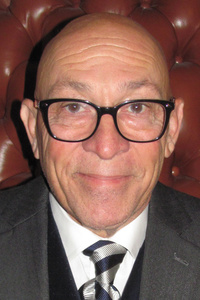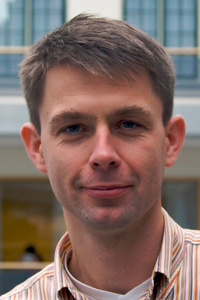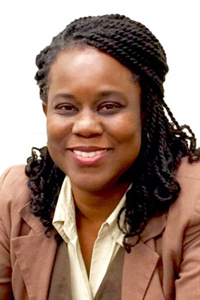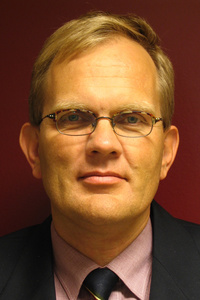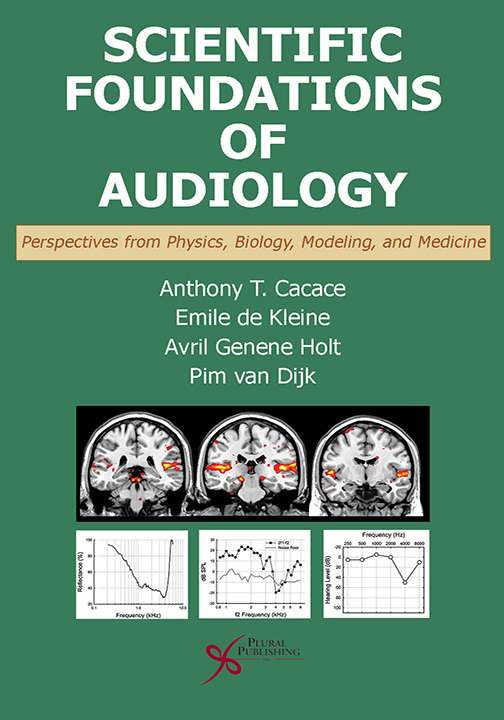
Scientific Foundations of Audiology: Perspectives from Physics, Biology, Modeling, and Medicine
380 pages, B&W, Hardcover, 7" x 10"
Anthony T. Cacace, Emile de Kleine, Avril Genene Holt, Pim van Dijk
Details: 380 pages, B&W, Hardcover, 7" x 10"
ISBN13: 978-1-59756-652-0
© 2016 | Available
Purchase
With advancements across various scientific and medical fields, professionals in audiology are in a unique position to integrate cutting-edge technology with real-world situations. Scientific Foundations of Audiology provides a strong basis and philosophical framework for understanding various domains of hearing science in the context of contemporary developments in genetics, gene expression, bioengineering, neuroimaging, neurochemistry, cochlear and mid-brain implants, associated speech processing and understanding, molecular biology, physics, modeling, medicine, and clinical practice.
Key features of this text include:
- Highly technical information presented in a cohesive and understandable manner (i.e., concepts without complex equations)
- Discussion of integrating newly developed technology within the clinical practice of audiology
- State-of-the-art contributions from a stellar array of international, world-class experts
Scientific Foundations of Audiology is geared toward doctoral students in audiology, physics, and engineering; residents in otolaryngology, neurology, neurosurgery, and pediatrics; and those intermediaries between innovation and clinical reality.
Anthony Cacace discusses physics, biology, and modelling with Douglas L. Beck, AuD in The Hearing Review. Read the inteview here.
Reviews
"Scientific Foundations in Audiology: Perspectives from Physics, Biology, Modeling, and Medicine is a unique textbook which discusses a wide range of state-of-the-art topics in hearing, vestibular and brain science. The editors purport that this book is geared towards doctoral students, medics and those operating between innovation and clinical practice. Indeed, the overall impression is that the book assumes a great deal of prior theoretical and practical understanding regarding various facets of audiology. As such, it excludes many of the basic concepts found in common audiology textbooks, to focus on emerging concepts in practice such as developments in genetics, imaging, auditory implants, and speech processing, amongst others. The success of the book owes much to the fact that the issues of translating basic research to clinical practice in each of these topics are discussed in a clear and straightforward manner by all the contributors. . . . I would highly recommend this textbook as a solid background reading to post-graduate students wishing to research and of the topics covered within."
—Tendai Ngwerume, Head of Paediatric Audiology, Derby Teaching Hospitals, UK, in ENT & Audiology News (March/April 2018)
“This textbook provides best practice recommendations on unique topics related to hearing and hearing disorders, including vestibular and brain science. The chapters cover areas not explored in other textbooks, which are crucial to the field of audiology. The book emphasises the opportunities audiologists have to implement changes in engineering, clinical practices, and science into their clinic for the direct benefit of clients. The intention is to provide the foundation for understanding clinical procedures as well as highlighting advanced materials and concepts.
The book is written to provide practical, experimental and theoretical perspective of best practice.
The Table of Contents includes basic sciences (anatomy, genetics, gene expression) which would be an excellent resource for diagnostic audiologists. The chapters on the physical principles of the ear, middle ear and inner ear function, can also be crucial for the success of hearing aid fittings. Finally, mechanisms for speech perception, associated with electrical stimulation and cortical processing of sound are also covered.
The intended audience for this textbook is of course, students of audiology. However, the vast array of topics covered within the textbook will appeal to all audiologists seeking to provide up to date clinical procedures for their clients.
The first chapters provide the framework to guide later understanding. There is an excellent chapter on the future of cochlear implants and the perception and psychoacoustics of speech in cochlear genetics of deafness in mice and men, more importantly, the prevalence of age related hearing loss. […]
The authors intent is to expand the knowledge base of readers and provide an alternative to ‘status quo’ approaches in audiology. The collaborators are world-class scientists, clinicians, and scholars, and this shows through in the text. The information is technically advanced but presented in a logical, and understandable manner.
This textbook includes many innovative topics and alternative points of view. The authors have a common desire to apply new and advanced concepts to everyday clinical situations. They cover
a broad spectrum of disciplines, including medicine, engineering, basic science and audiology and provide state of the art solutions to clinical questions. The intention is to fill a void, as there is no other print containing such a repository of diverse and highly technological information presented in such a coherent manner.”
—Emma Wilce, in the Audiology Australia (October 2021)
Introduction
Contributors
Chapter 1. Middle-Ear Reflectance: Concepts and Clinical Applications
Jont B. Allen, Sarah R. Robinson, Judi A. Lapsley Miller, Patricia S. Jeng, and Harry Levitt
Chapter 2. Otoacoustic Emissions: Measurement, Modeling, and Applications
Glenis Long and Bastian Epp
Chapter 3. The Audiogram: What It Measures, What It Predicts, and What It Misses
Anthony T. Cacace and Robert F. Burkard
Chapter 4. Contemporary Issues in Vestibular Assessment
Faith W. Akin, Owen D. Murnane, and Kristal Mills Riska
Chapter 5. Genetics of Deafness: In Mice and Men
Mirna Mustapha and Avril Genene Holt
Chapter 6. Molecular-Based Measures for the Development of Treatment for Auditory System Disorders: Important Transformative Steps Toward the Treatment of Tinnitus
Avril Genene Holt, Catherine A. Martin, Antonela Muca, Angela R. Dixon, and Magnus Bergkvist
Chapter 7. Medical and Surgical Treatment of Inner Ear Disease
Lawrence R. Lustig
Chapter 8. The Future of Cochlear Implants
Richard Tyler, Paul R. Kileny, Aniruddha K. Deshpande, Shruti Balvalli Deshpande, Camille Dunn, Marlan Hansen, and Bruce Gantz
Chapter 9. Novel Approaches for Protection and Restoration of Hearing
Min Young Lee and Yehoash Raphael
Chapter 10. The Olivocochlear System: A Current Understanding of Its Molecular Biology and Functional Roles in Development and Noise-Induced Hearing Loss
Douglas E. Vetter
Chapter 11. Current Progress With Auditory Midbrain Implants
Hubert H. Lim, James F. Patrick, and Thomas Lenarz
Chapter 12. Perception and Psychoacoustics of Speech in Cochlear Implant Users
Deniz Baskent, Etienne Gaudrain, Terrin Nichole Tamati, and Anita Wagner
Chapter 13. Theoretical Considerations in Developing an APD Construct: A Neuroscience Perspective
Dennis J. McFarland and Anthony T. Cacace
Chapter 14. Normal Sound Processing: fMRI
Stefan Uppenkamp and Roy D. Patterson
Chapter 15. Tinnitus Neurophysiology According to Structural and Functional Magnetic Resonance Imaging
Dave R.M. Langers and Emile de Kleine
Index
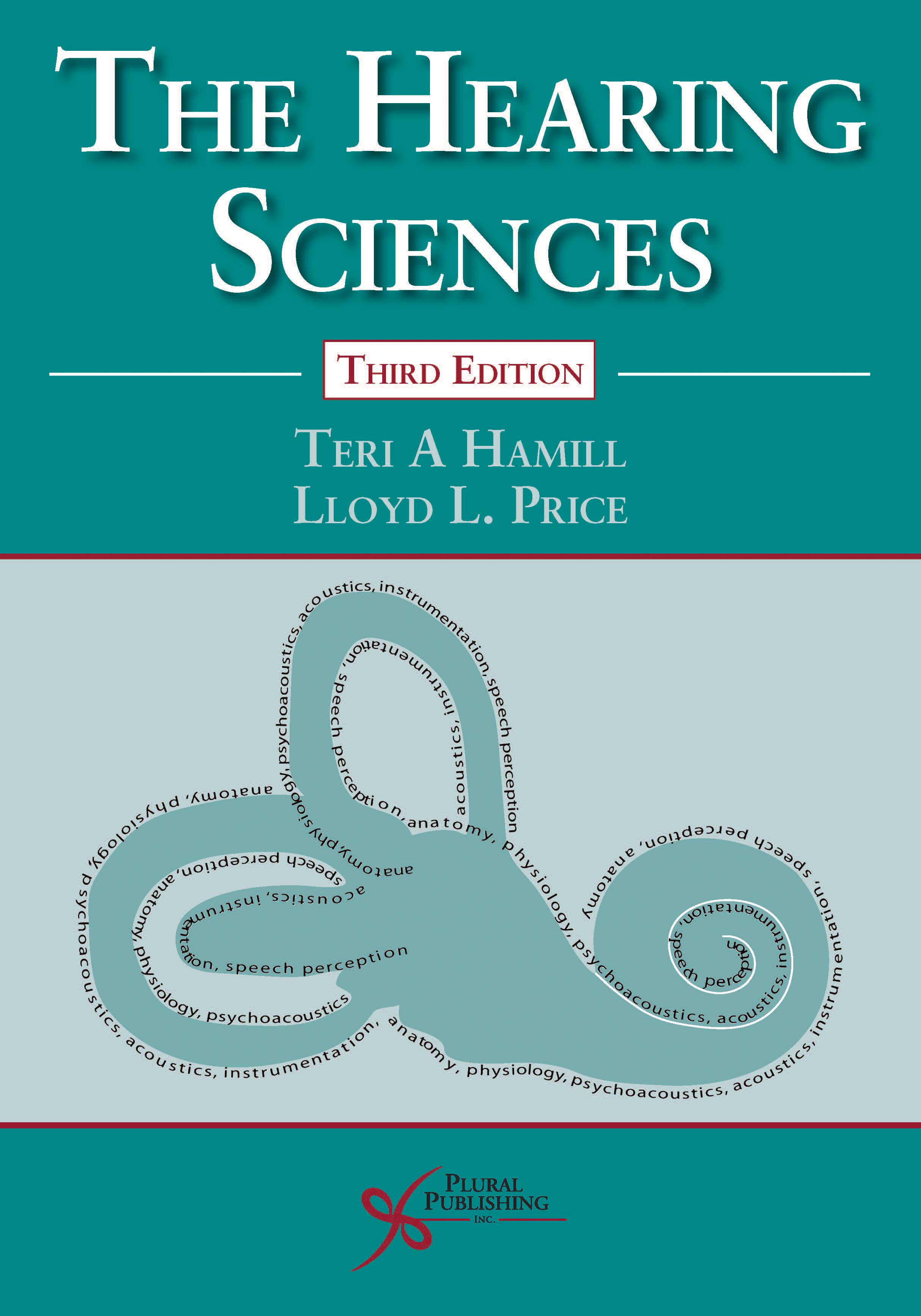
The Hearing Sciences
Third Edition
Teri A. Hamill, Lloyd L. Price
Details: 637 pages, B&W, Softcover, 8.5" x 11"
ISBN13: 978-1-94488-363-8
© 2019 | Available
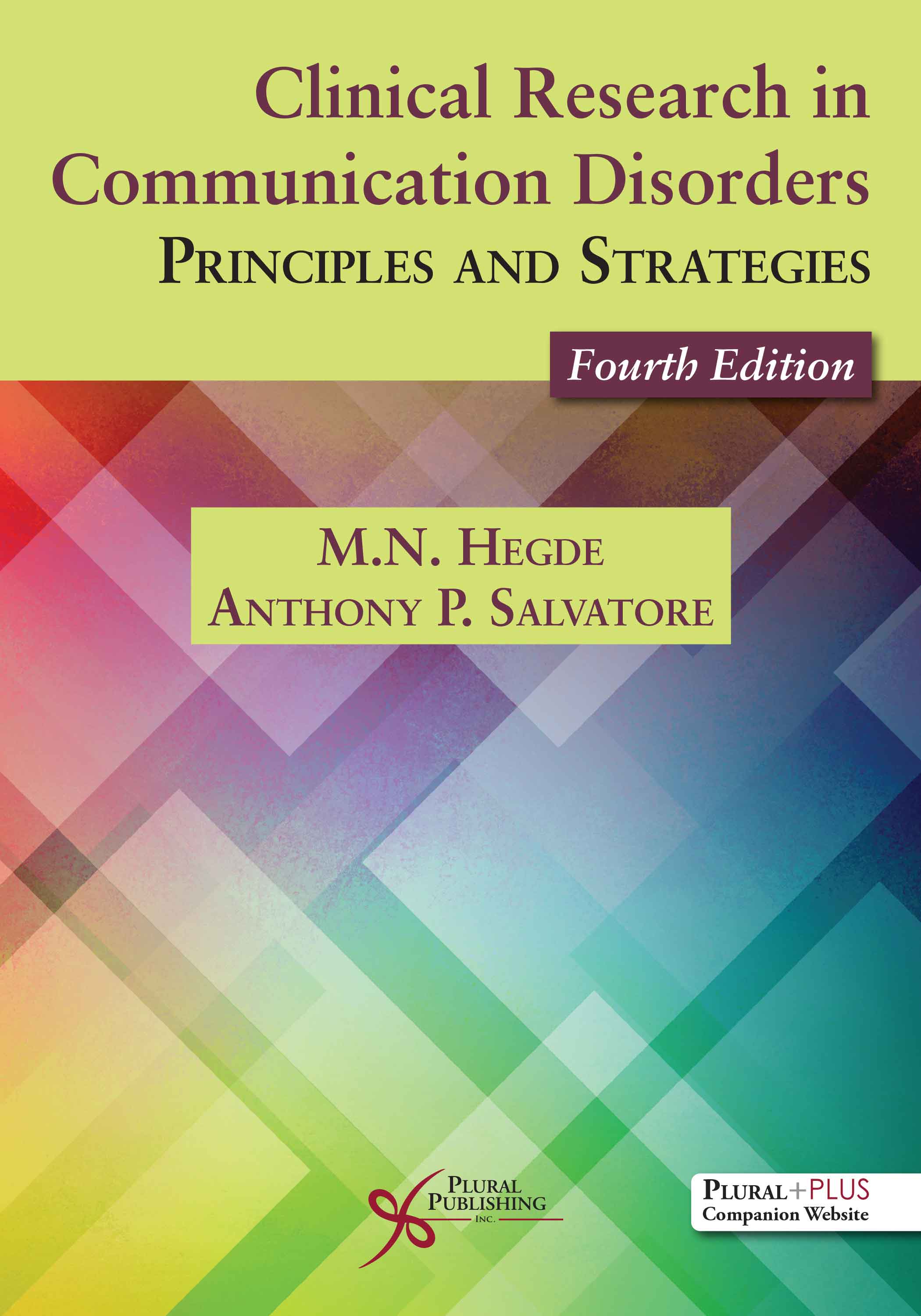
Clinical Research in Communication Disorders: Principles and Strategies
Fourth Edition
M.N. Hegde, Anthony P. Salvatore
Details: 526 pages, B&W, Softcover, 7" x 10"
ISBN13: 978-1-63550-187-2
© 2020 | Available
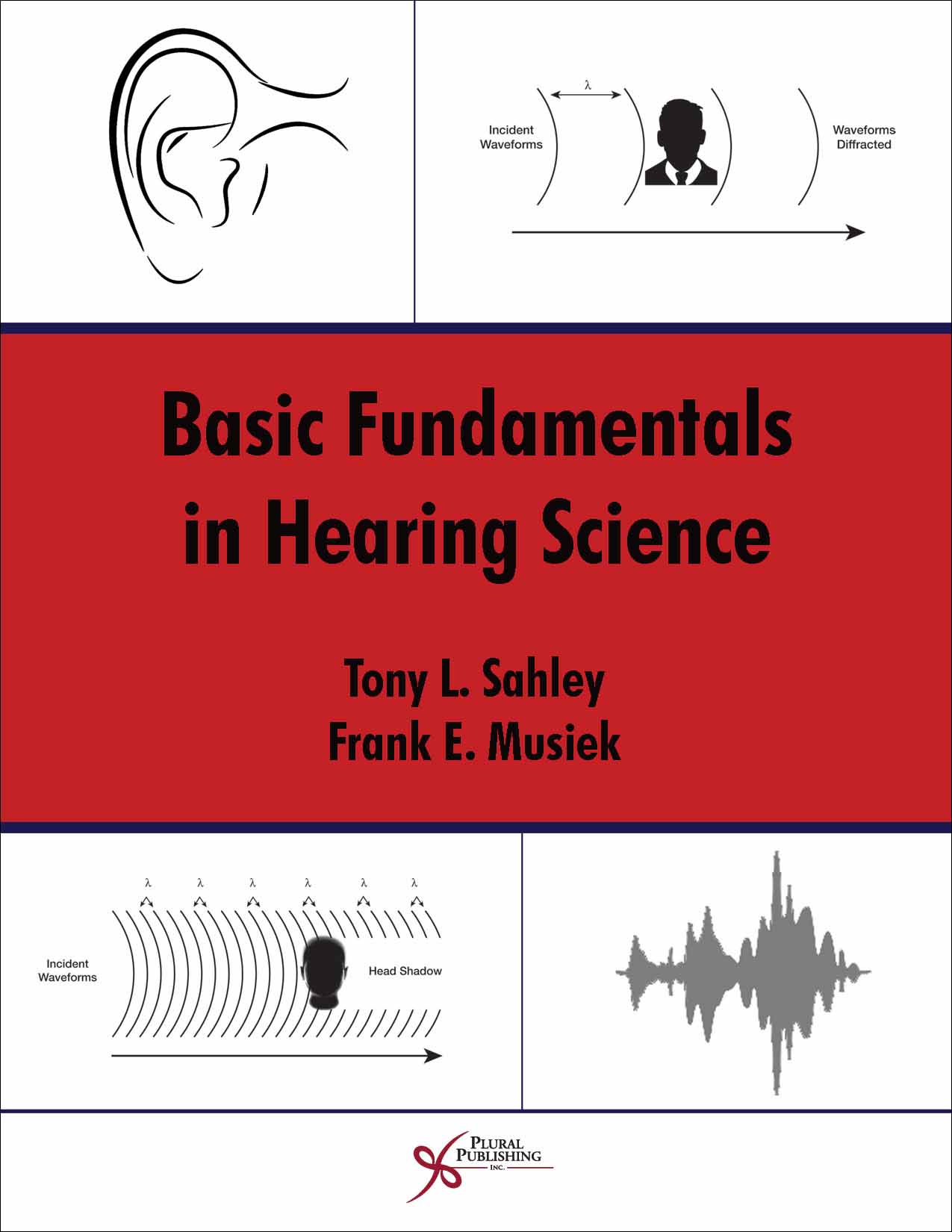
Basic Fundamentals in Hearing Science
First Edition
Tony L. Sahley, Frank E. Musiek
Details: 704 pages, B&W, Hardcover, 7" x 10"
ISBN13: 978-1-59756-549-3
© 2016 | Available
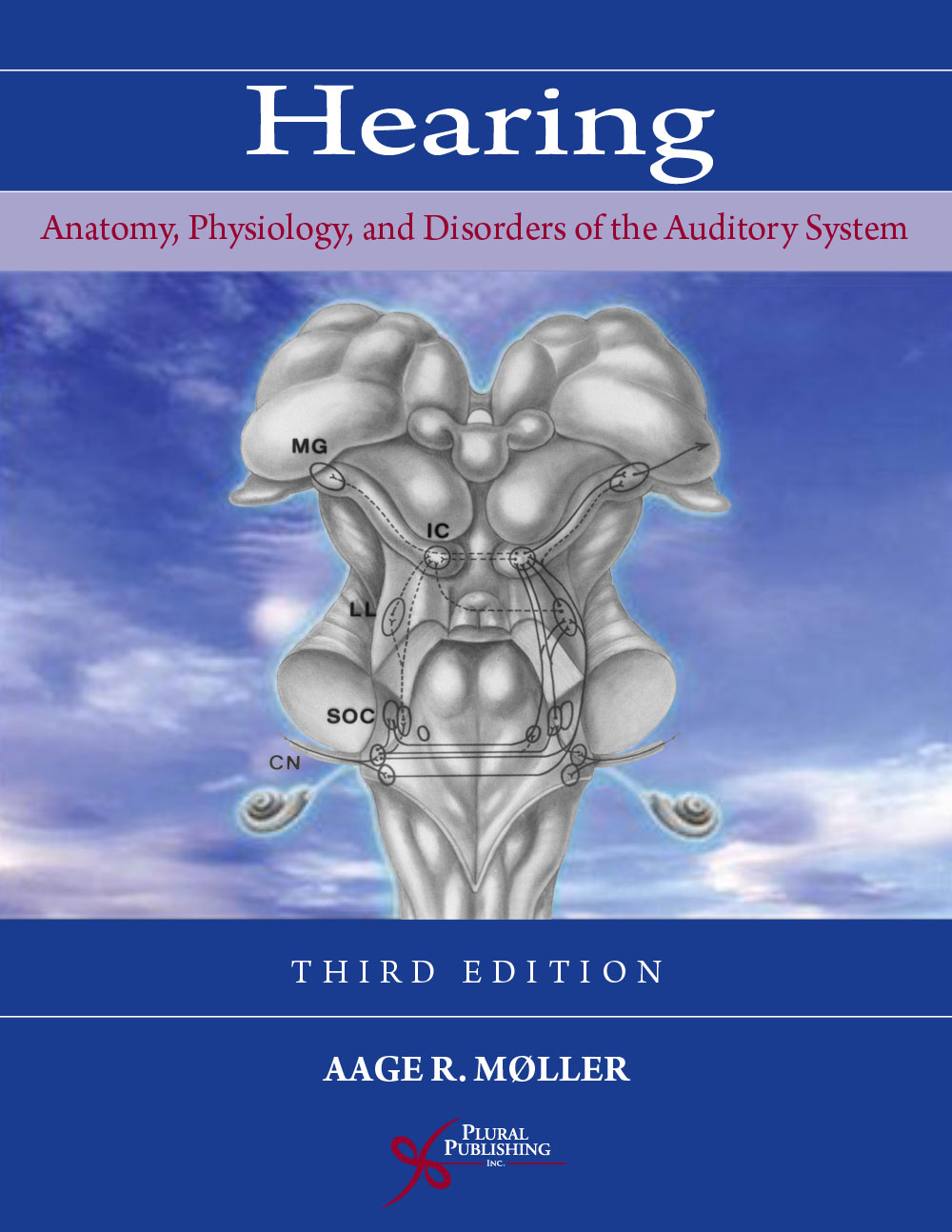
Hearing: Anatomy, Physiology, and Disorders of the Auditory System
Third Edition
Aage R. Møller
Details: 432 pages, B&W, Hardcover, 8.5" x 11"
ISBN13: 978-1-59756-427-4
© 2013 | Available
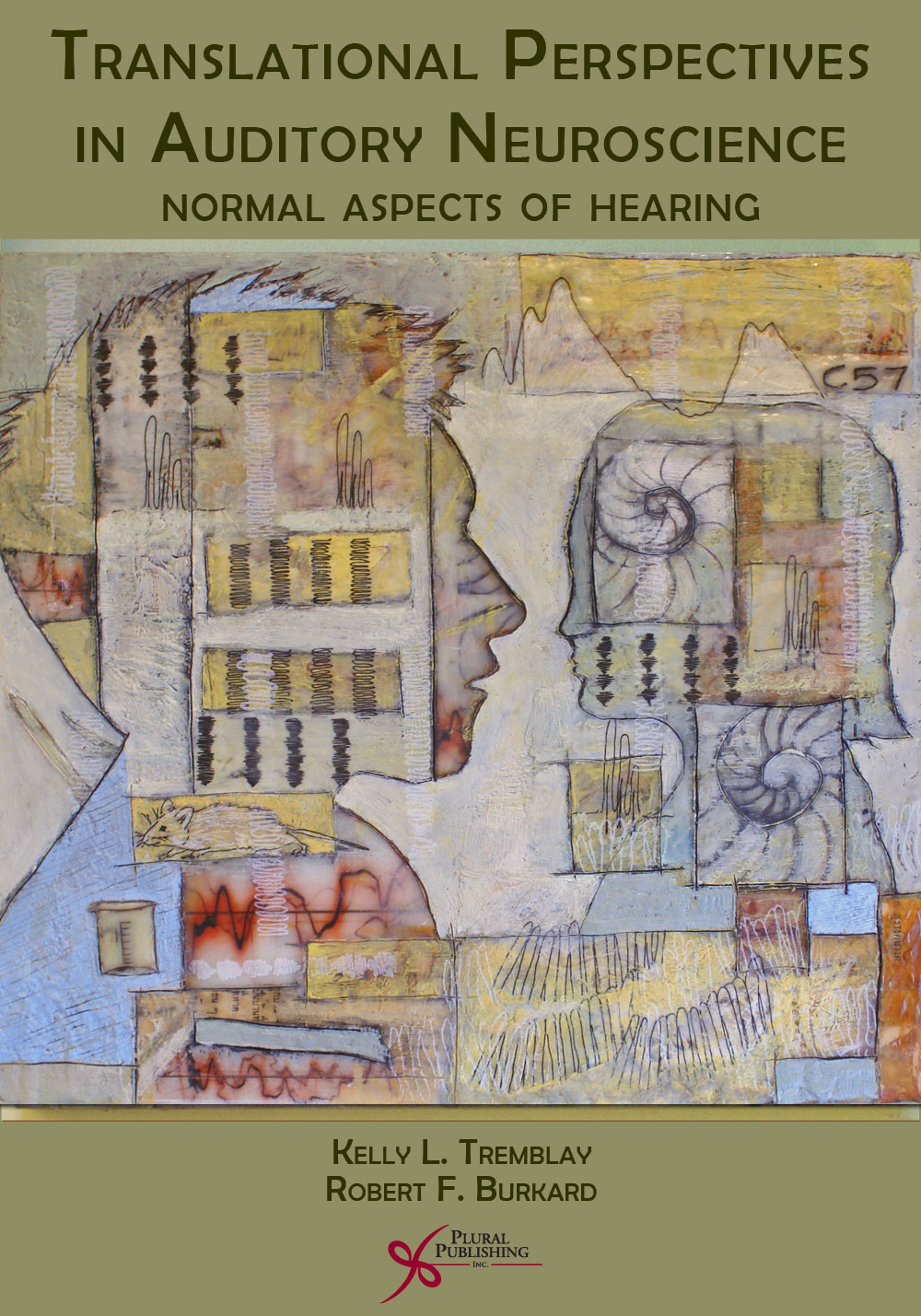
Translational Perspectives in Auditory Neuroscience: Normal Aspects of Hearing
First Edition
Kelly Tremblay, Robert F. Burkard
Details: 488 pages, Full Color, Hardcover, 8.5" x 11"
ISBN13: 978-1-59756-202-7
© 2012 | Available
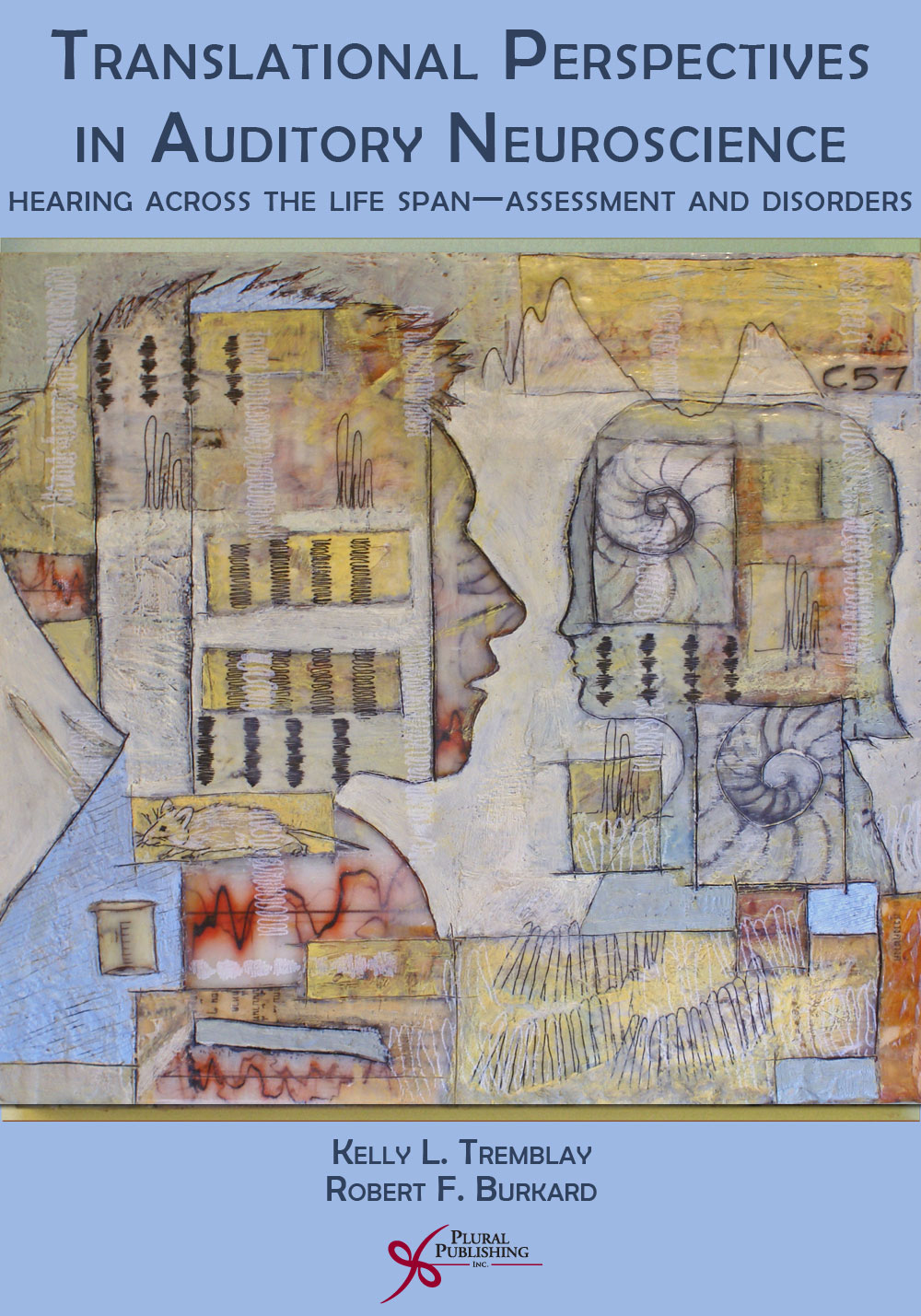
Translational Perspectives in Auditory Neuroscience: Hearing Across the Life Span - Assessment and Disorders
First Edition
Kelly Tremblay, Robert F. Burkard
Details: 336 pages, Full Color, Hardcover, 8.5" x 11"
ISBN13: 978-1-59756-467-0
© 2012 | Available
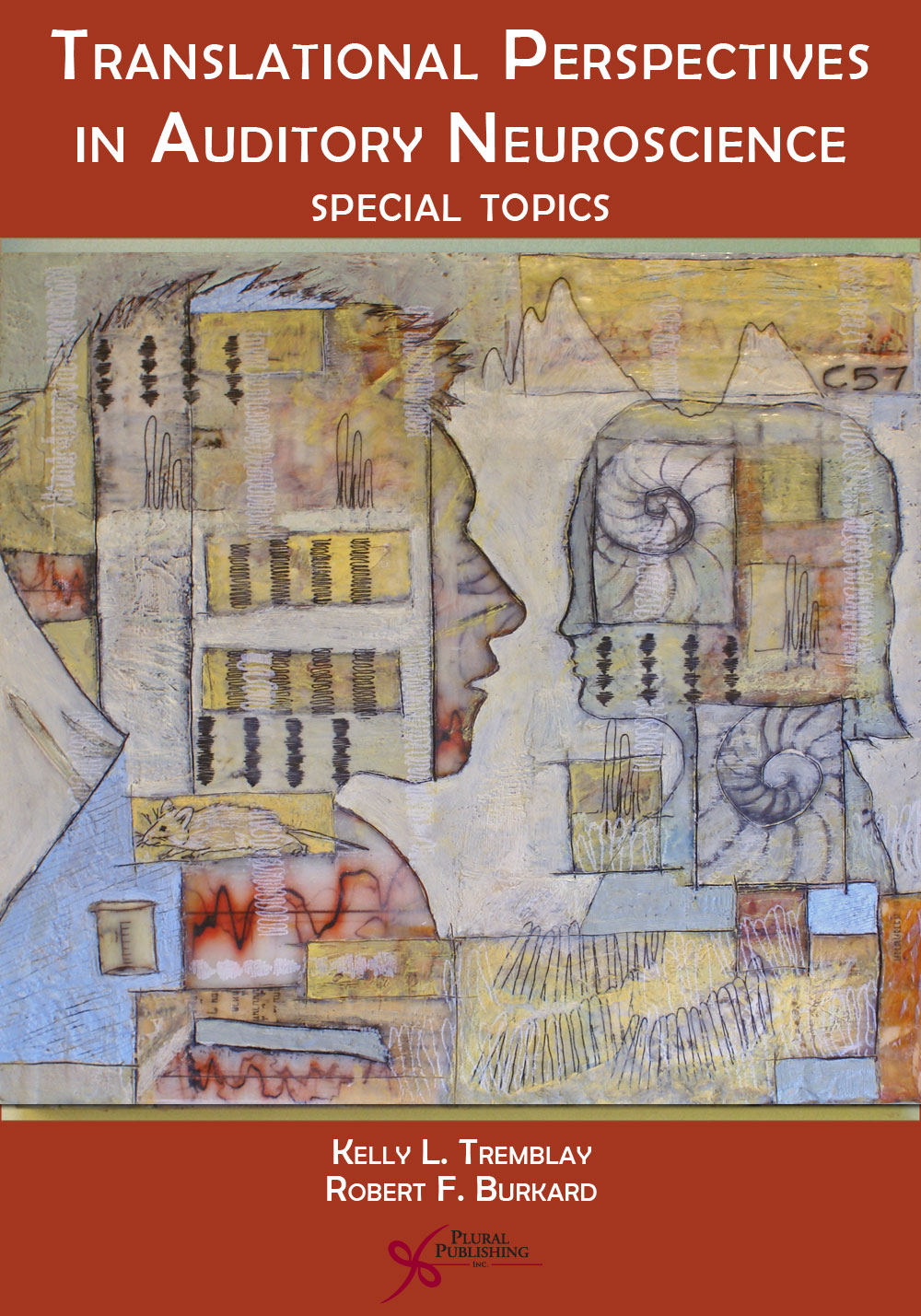
Translational Perspectives in Auditory Neuroscience: Special Topics
First Edition
Kelly Tremblay, Robert F. Burkard
Details: 216 pages, Full Color, Hardcover, 8.5" x 11"
ISBN13: 978-1-59756-468-7
© 2012 | Available
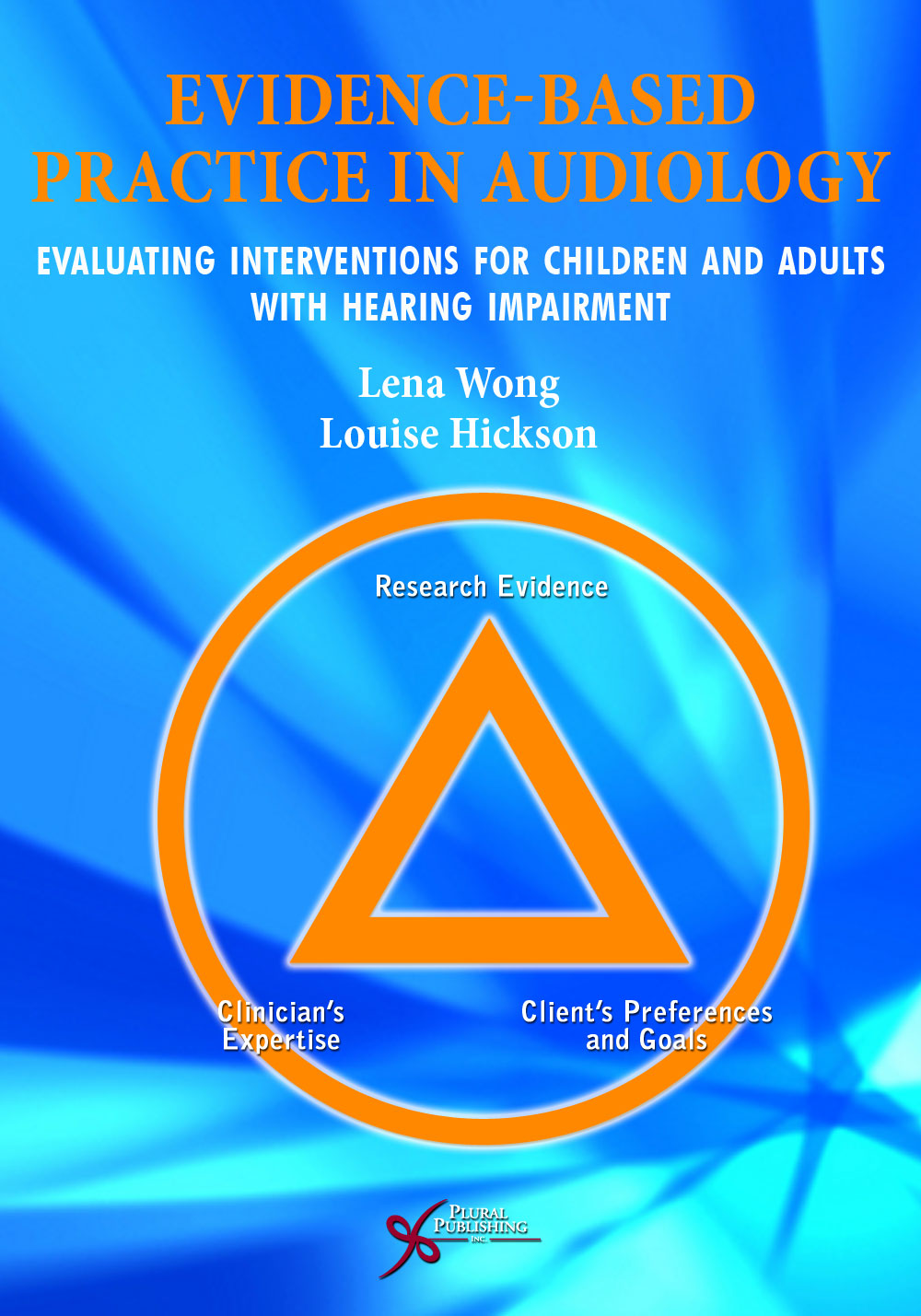
Evidence-Based Practice in Audiology: Evaluating Interventions for Children and Adults with Hearing Impairment
First Edition
Lena Wong, Louise Hickson
Details: 356 pages, B&W, Softcover, 7" x 10"
ISBN13: 978-1-59756-419-9
© 2012 | Available
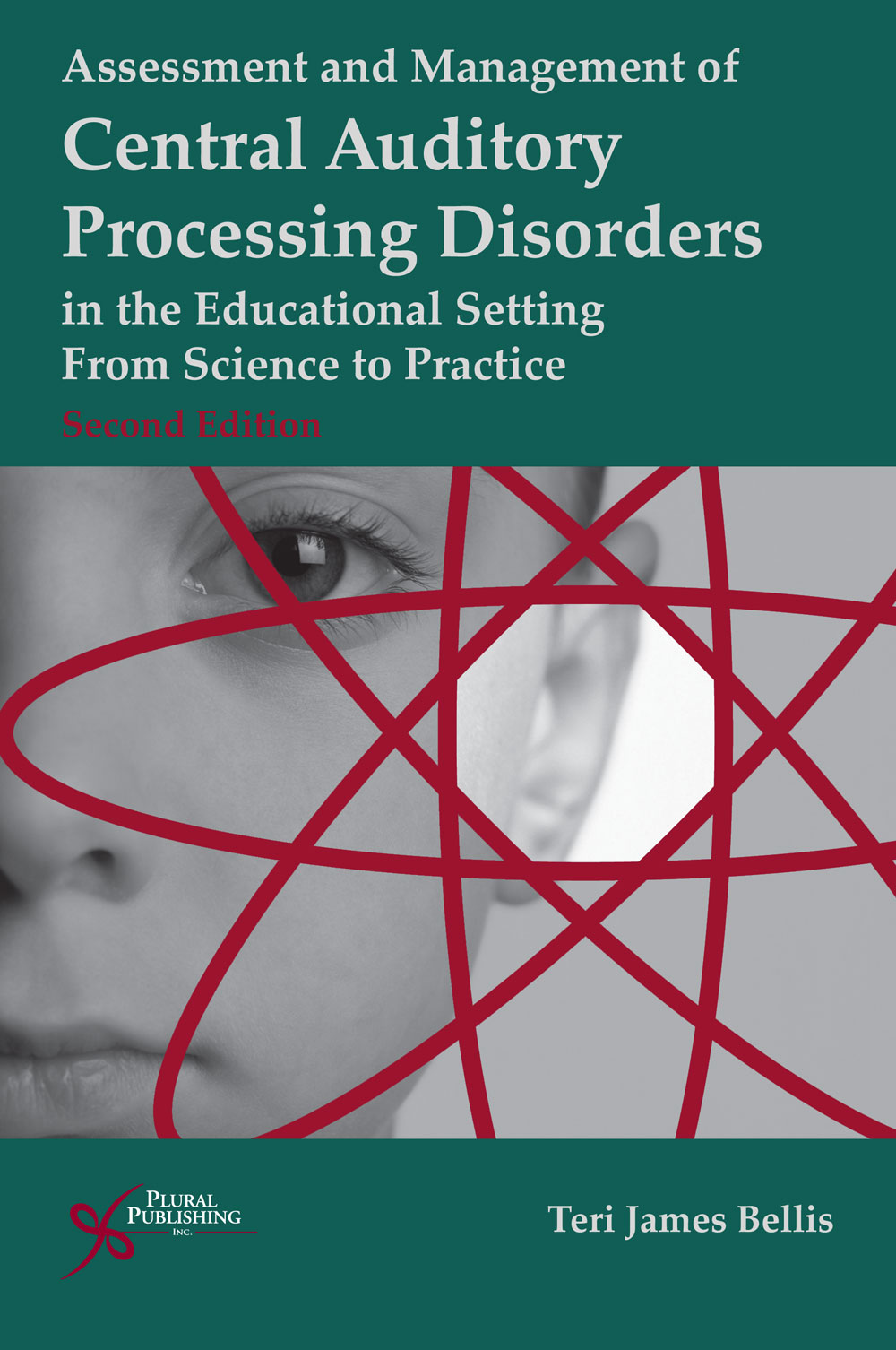
Assessment and Management of Central Auditory Processing Disorders in the Educational Setting: From Science to Practice
Second Edition
Teri James Bellis
Details: 532 pages, B&W, Softcover, 7" x 10"
ISBN13: 978-1-59756-451-9
© 2011 | Available
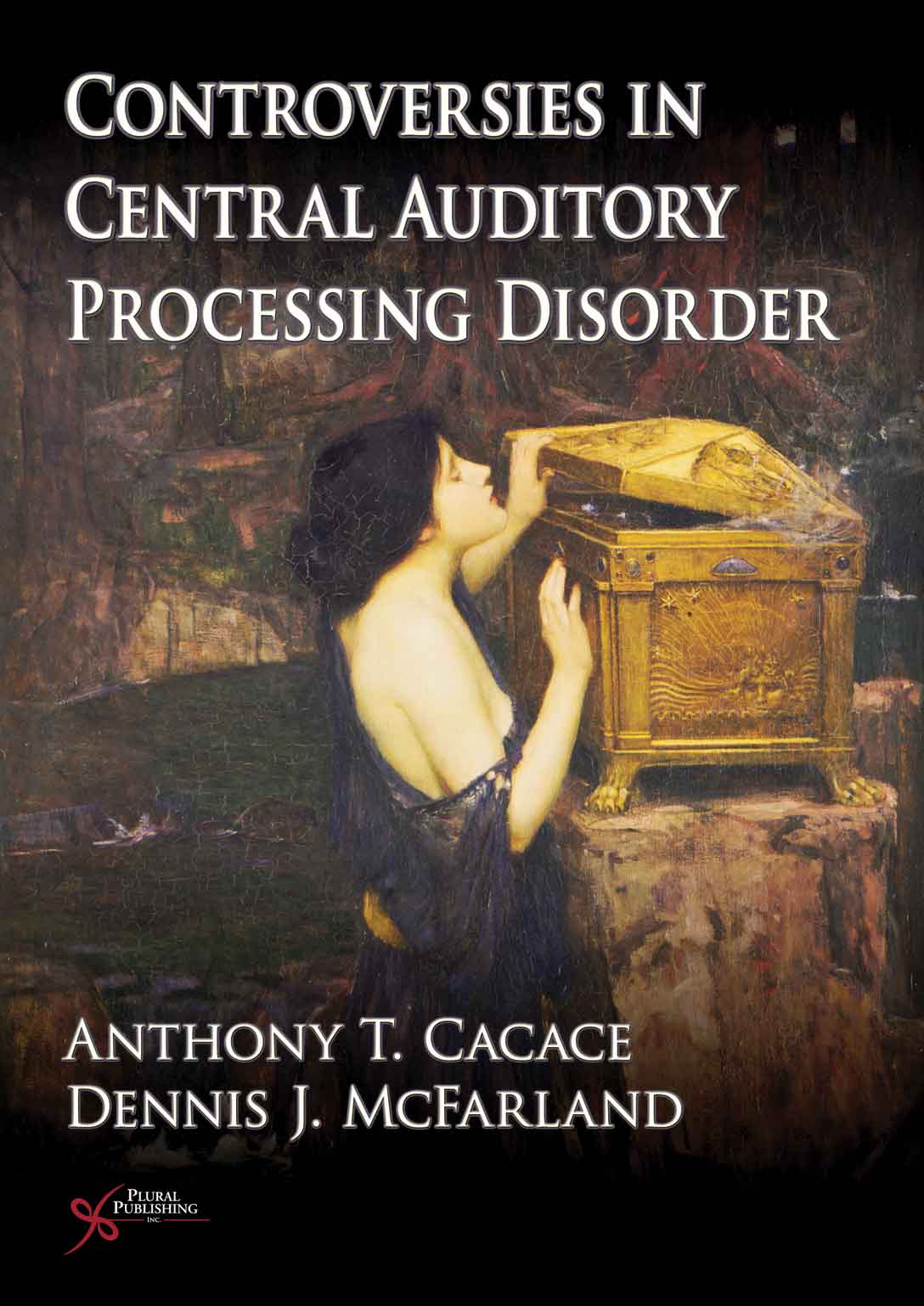
Controversies in Central Auditory Processing Disorder
First Edition
Anthony T. Cacace, Dennis J. McFarland
Details: 550 pages, B&W, Hardcover, 7" x 10"
ISBN13: 978-1-59756-260-7
© 2009 | Available
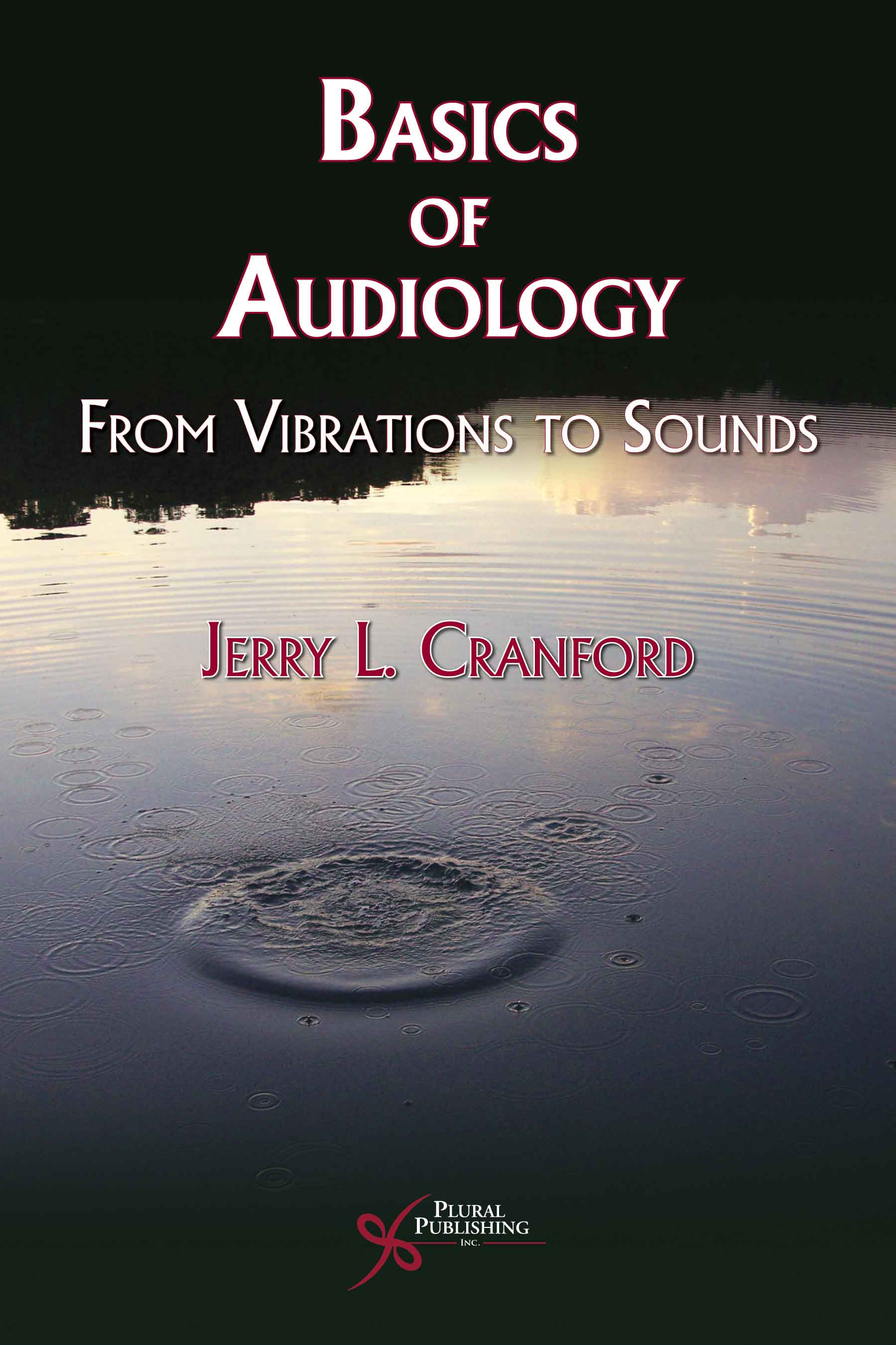
Basics of Audiology: From Vibrations to Sounds
First Edition
Jerry Cranford
Details: 140 pages, B&W, Softcover, 6" x 9"
ISBN13: 978-1-59756-180-8
© 2008 | Available
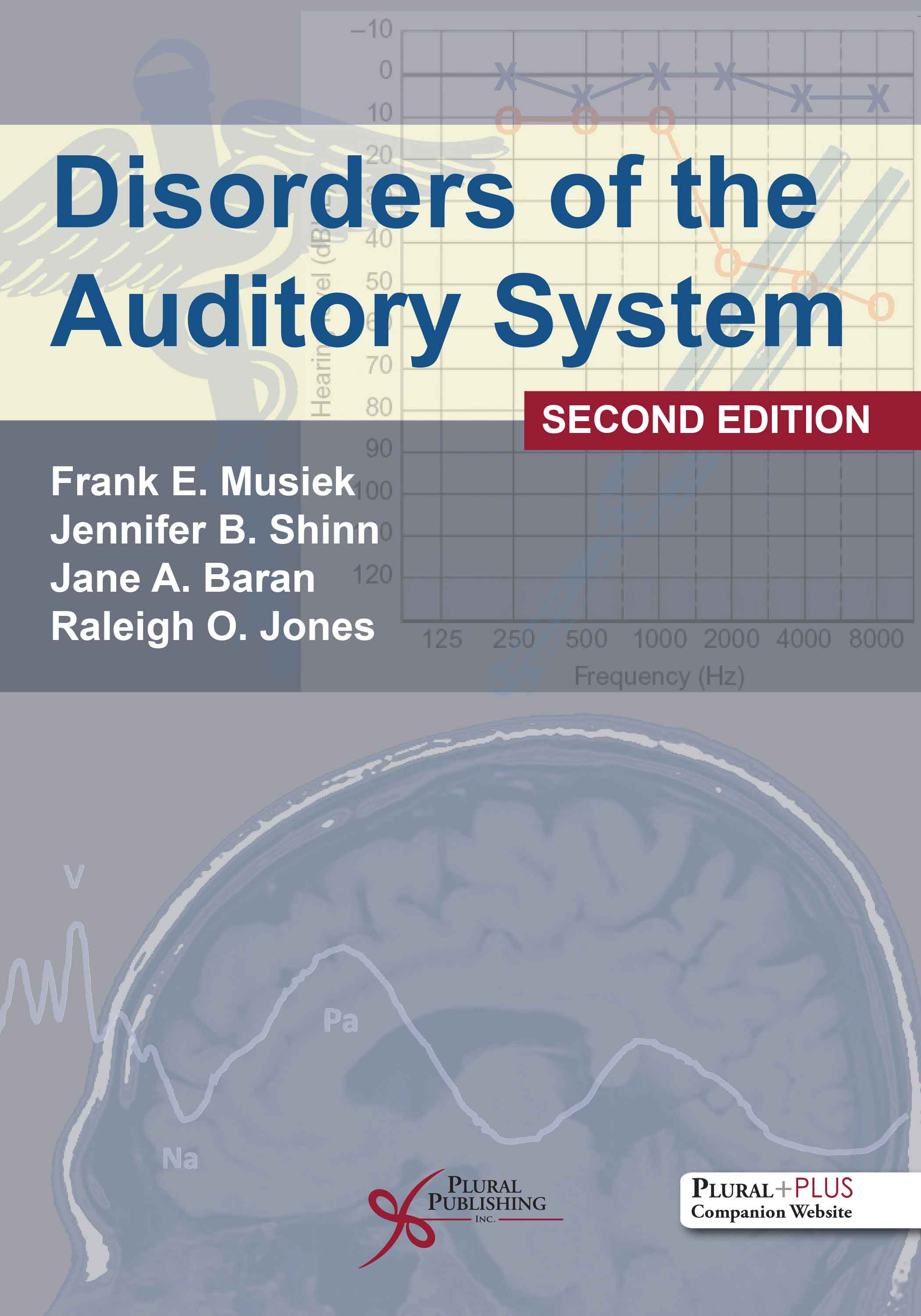
Disorders of the Auditory System
Second Edition
Frank E. Musiek, Jennifer B. Shinn, Jane A. Baran, Raleigh O. Jones
Details: 492 pages, B&W with Full Color Insert, Hardcover, 7" x 10"
ISBN13: 978-1-63550-216-9
© 2021 | Available
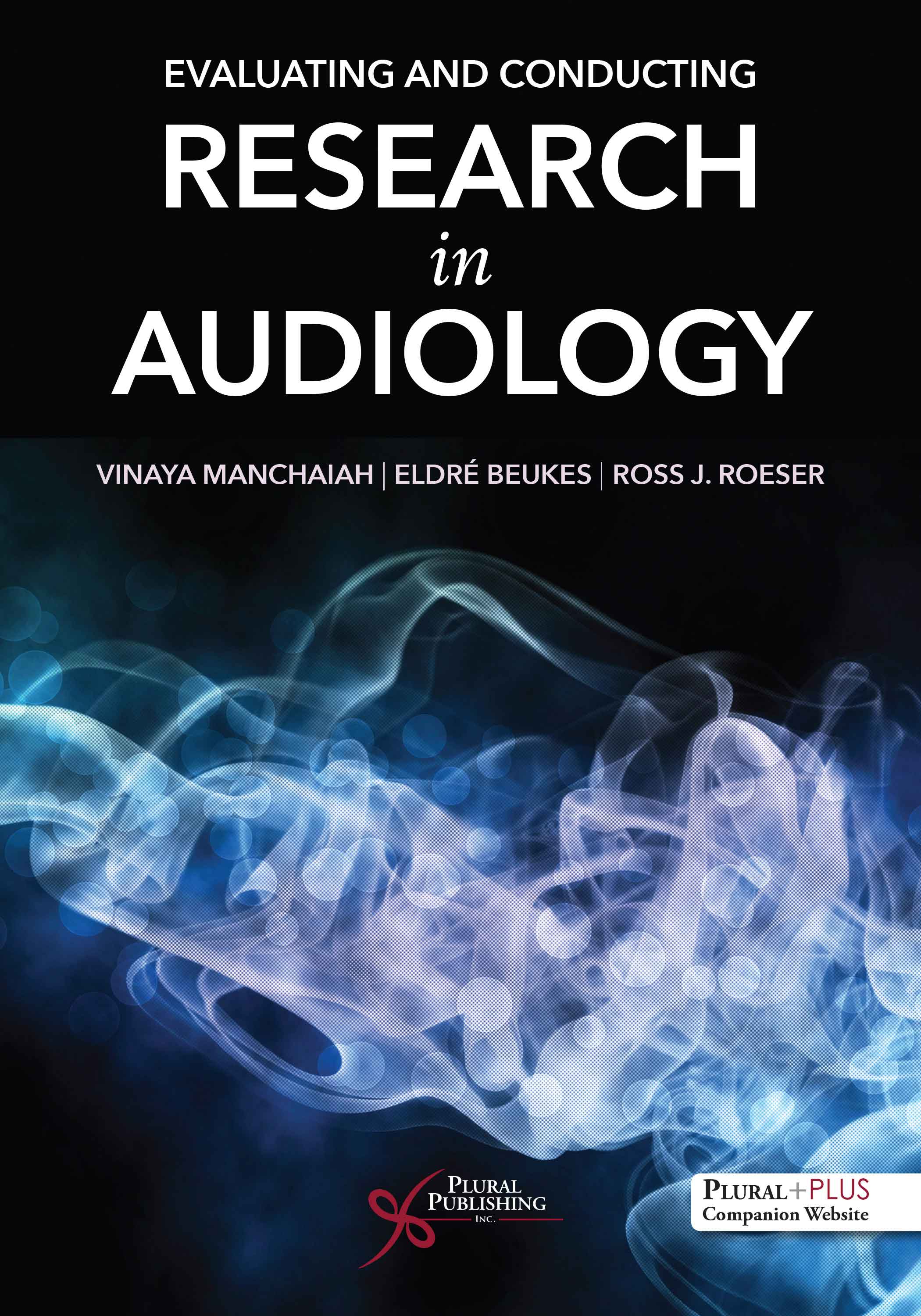
Evaluating and Conducting Research in Audiology
First Edition
Vinaya Manchaiah, Eldré W. Beukes, Ross J. Roeser
Details: 400 pages, B&W, Softcover, 7" x 10"
ISBN13: 978-1-63550-190-2
© 2022 | Available
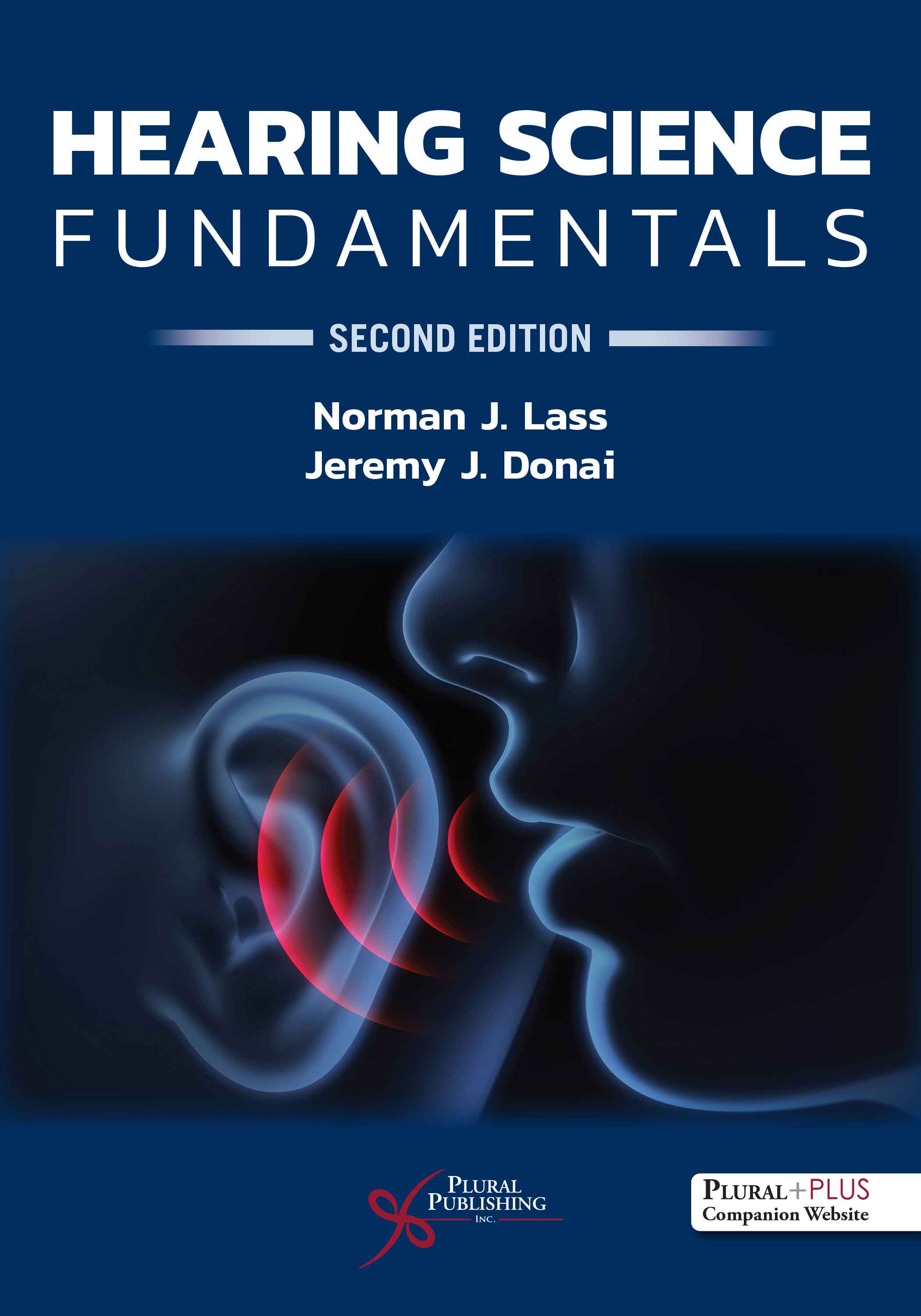
Hearing Science Fundamentals.
Second Edition
Norman J. Lass, Jeremy J. Donai
Details: 370 pages, 2-Color, Softcover, 7" x 10"
ISBN13: 978-1-63550-328-9
© 2023 | Available
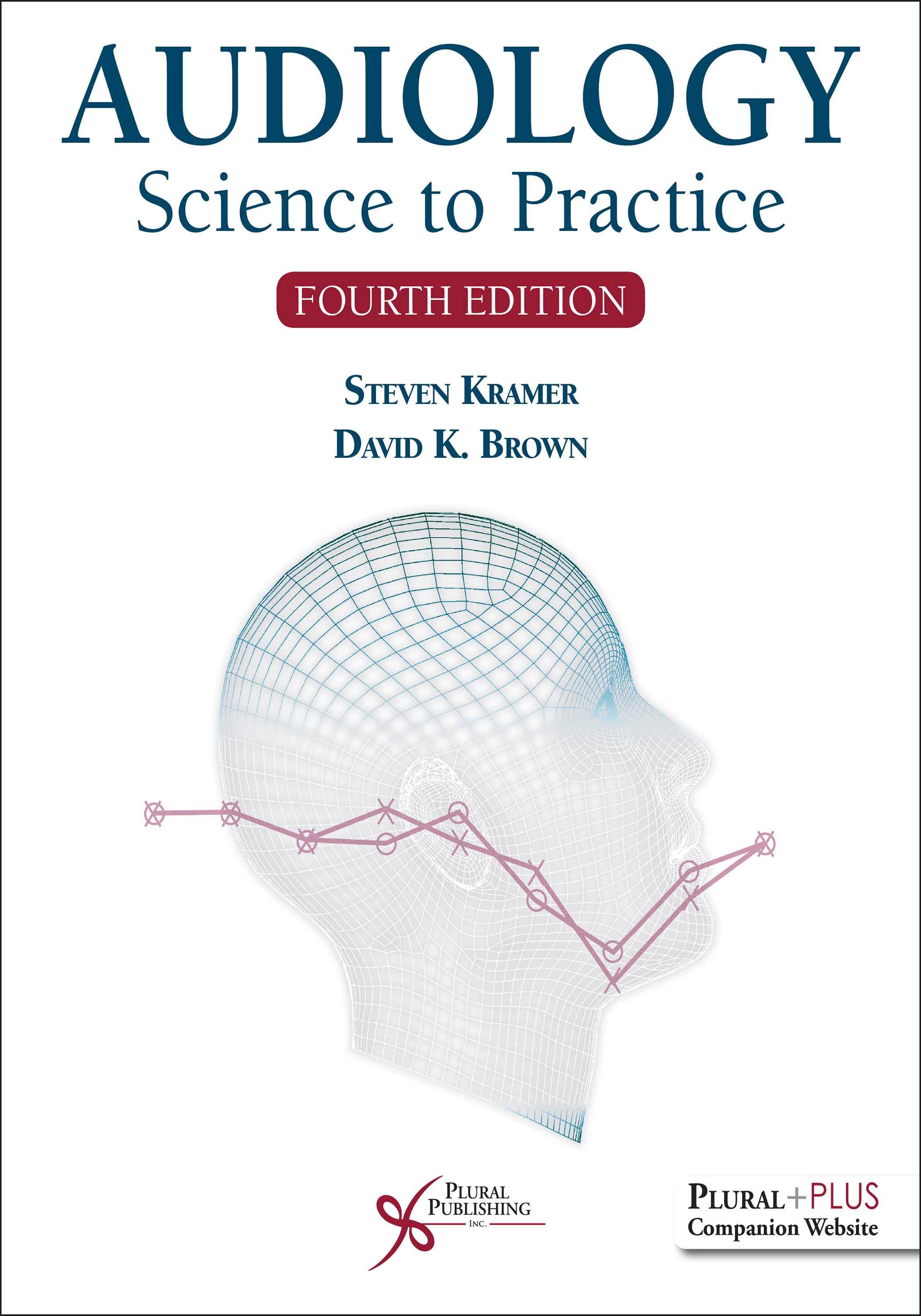
Audiology: Science to Practice
Fourth Edition
Steven Kramer, David K. Brown
Details: 487 pages, 2-Color, Softcover, 8.5" x 11"
ISBN13: 978-1-63550-346-3
© 2023 | Available

